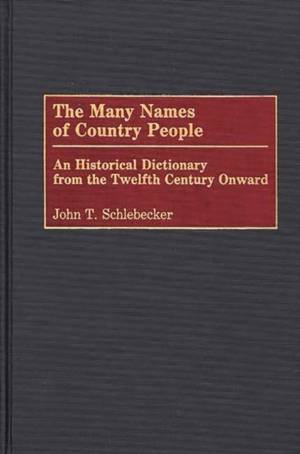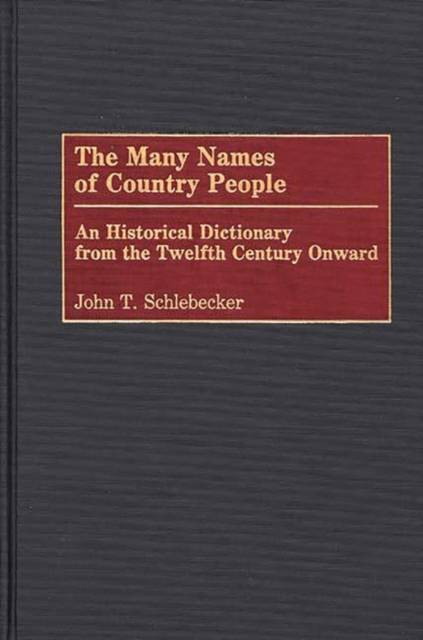
- Afhalen na 1 uur in een winkel met voorraad
- Gratis thuislevering in België vanaf € 30
- Ruim aanbod met 7 miljoen producten
- Afhalen na 1 uur in een winkel met voorraad
- Gratis thuislevering in België vanaf € 30
- Ruim aanbod met 7 miljoen producten
Zoeken
The Many Names of Country People
An Historical Dictionary from the Twelfth Century Onward
John T Schlebecker
€ 140,95
+ 281 punten
Omschrijving
Country names are used to describe people who were--or are--engaged in agricultural pursuits. They indicate status, occupation, duties, geographical location, type or level of skill, economic function, and many other conditions of rural life. This new historical dictionary provides an important key to country life in English-speaking regions from the twelfth to the twentieth centuries. It presents information on the usage, meanings, and historical background for more than 1,778 names that have been given to the country people of Britain, North America, and the West Indies, as well as Australia, New Zealand, and South Africa.
The entries identify agrarian meanings of the names, the occupational groups that used them, dates of use, geographical range, and common and uncommon variants. Connotations are noted--whether the terms are respectful or derogatory, playful, or merely descriptive--and cross-referencing is supplied for terms that appear in more than one entry. This reference is the only comprehensive work of its kind. It will be a useful and informative companion to the researcher concerned with agricultural and economic history, the history of English-speaking peoples, and the history of the English language.Specificaties
Betrokkenen
- Auteur(s):
- Uitgeverij:
Inhoud
- Aantal bladzijden:
- 337
- Taal:
- Engels
- Reeks:
Eigenschappen
- Productcode (EAN):
- 9780313264177
- Verschijningsdatum:
- 10/04/1989
- Uitvoering:
- Hardcover
- Formaat:
- Genaaid
- Afmetingen:
- 152 mm x 229 mm
- Gewicht:
- 671 g

Alleen bij Standaard Boekhandel
+ 281 punten op je klantenkaart van Standaard Boekhandel
Beoordelingen
We publiceren alleen reviews die voldoen aan de voorwaarden voor reviews. Bekijk onze voorwaarden voor reviews.











